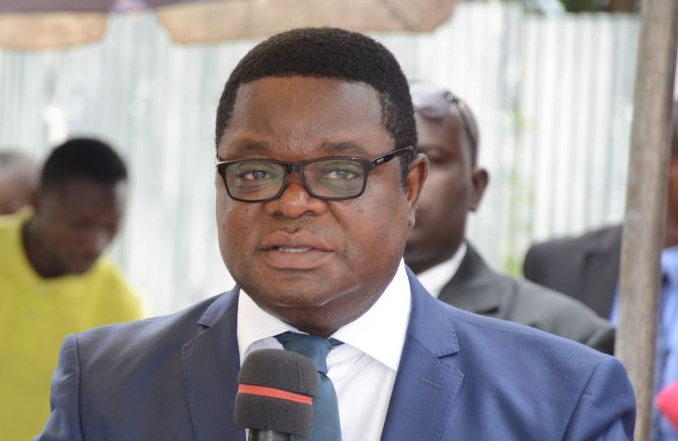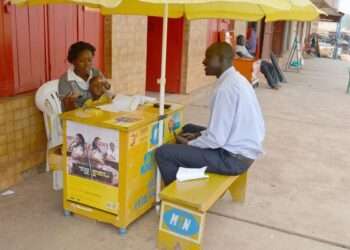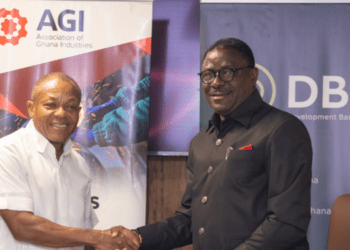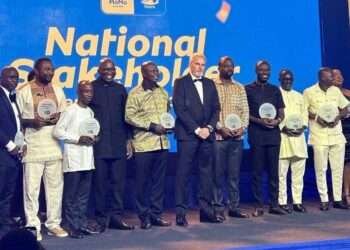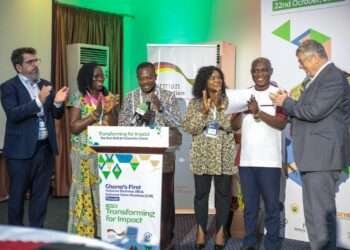The Director at the Institute of Statistical, Social and Economic Research (ISSER), Professor Peter Quartey has described the Africa Intercontinental Free Trade Area (AfCFTA) as a brilliant idea due to its large market prospects for Africans to trade.
According to him, AfCFTA will help Ghana achieve its sustainable development goals. However, it will materialize on the premise of being implemented effectively.
Speaking at the 2nd National Conference on the Implementation of the African Continental Free Trade Area (AfCFTA) Agreement, Professor Quartey intimated that more should be done along the borders by operationalizing AfCFTA via equipping ports and immigrations officers to be well acquainted with the AfCFTA.
“The AfCFTA is a brilliant idea, it’s a larger market and it will help us achieve our SDGs. But that is if and only if we operationalize it and implement it effectively as possible.
“One interesting area will be mobility of persons. People coming freely across the borders and we know what migration brings. On paper, we have a brilliant policy but in practice if you move across our borders, even from Accra to Aflao, the number of checkpoints, legal and illegal is enormous”.
Commenting on the viable market opportunities within AfCFTA, Professor Quartey noted that the market will indeed be great and as such each and every one will have a greater share, “but that is if it’s shared equally”.
“Unfortunately, markets, pre-market economies don’t work that way. The rich always gets richer, the poor gets poorer. If you take South Africa, if you take Nigeria, if you take Egypt, the three accounts for about fifty percent of our GDP. What it means is that, as you open up, the big players will certainly be the greater beneficiaries; that is where we have to look at the negatives, how we ensure that those who lose or the losers are brought on board”.
Another key area worthy of consideration and highlighted by the ISSER Director was the role of the sustainable development goals and also the issue of monitoring and evaluation of AfCFTA.
“And I think one area we often fail is the issue of monitoring and evaluation. I think regularly, there should be studies to unravel where the benefits are going, where the losers are, how we support them to prevent the agitations that will follow this brilliant initiative.
“Now linking to the SDGs, certainly, many African countries are making progress and Brookings has estimated that eighteen out of the forty four countries are likely to get halfway by 2030. However, many countries are unlikely to meet the SDGs by 2030.
“How are we placed as a country, how do we make sure we double our efforts to ensure we reduce poverty, hunger, all the seventeen goals that have been set by the SDGs. I think the benefits are enormous if we do our homework well. One is that, we have a bigger market. What are the benefits? Increased production, foreign exchange will come in, incomes will increase and if you look at the SDGs, poverty reduction, hunger and many other things including education [and] health. Once we have the resources, we will be able to tackle the SDGs head-on.
In the wake of free trade, Professor Quartey emphasized the m=need for made in Ghana goods as the problem which hasn’t been addressed so far “is the issue of quality”.
“Yes we have local production, we have Kantanka an all the others, we need some assurance from these producers that yes, the quality is equally good, otherwise the people will continue to import and it will defeat the efforts. Competition is going to increase and we are going to get better quality goods, but are these quality goods going to be from local sources or are going to be again, from other countries”.

